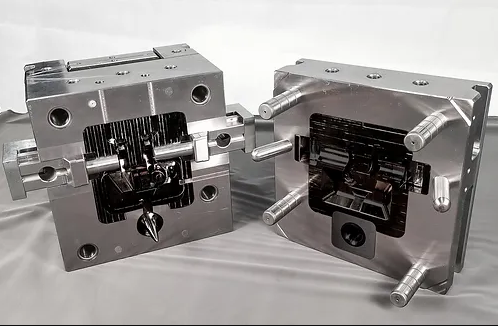CNC machining has become an increasingly popular manufacturing method for creating precision parts and components. One of the most commonly used materials for CNC machining is aluminum. Aluminum is a lightweight and versatile material that is widely used in the aerospace, automotive, and electronics industries. CNC machining aluminum parts offers numerous advantages over other manufacturing methods, including high precision, accuracy, and repeatability.
Precision Manufacturing with CNC Machining
CNC (Computer Numerical Control) machining is a manufacturing process that uses computer-controlled cutting tools to remove material from a workpiece. The process is highly precise and accurate because the cutting tools are programmed to make precise movements along multiple axes. CNC machining is capable of producing complex shapes and features that would be difficult or impossible to achieve with manual machining or other manufacturing methods.
CNC machining is particularly well-suited to the production of high-quality parts and components because it allows for tight tolerances and consistent results. CNC machines are capable of producing parts with tolerances as small as a few thousandths of an inch, ensuring that parts fit together perfectly and function as intended. This is especially important in industries where precision and reliability are critical, such as aerospace and automotive manufacturing.
Advantages of CNC Machining Aluminum Parts
Aluminum is a popular material for CNC machining because it is lightweight, strong, and corrosion-resistant. It is also easy to machine and can be finished to a high degree of precision. CNC machining aluminum parts offers several advantages over other manufacturing methods, including:
High Precision: CNC machining is capable of producing parts with extremely tight tolerances and high levels of accuracy. This is essential for industries such as aerospace and electronics, where even slight deviations from the intended specifications can cause problems.
Repeatability: Because CNC machining is a computer-controlled process, it is highly repeatable. This means that parts can be produced to the same specifications over and over again, ensuring consistent quality.
Flexibility: CNC machines can be programmed to produce a wide range of shapes and features, making them ideal for the production of complex parts and components.
Efficiency: CNC machining is an efficient manufacturing method because it can produce parts quickly and accurately. This reduces the need for manual labor and increases overall productivity.
Cost-Effective: While CNC machining can be more expensive than other manufacturing methods in some cases, it can be more cost-effective in the long run because it produces high-quality parts that are less likely to fail or require repairs.
Applications of CNC Machined Aluminum Parts
CNC machined aluminum parts are used in a wide range of industries, including:
Aerospace: Aluminum is a popular material for aerospace components because it is lightweight and strong. CNC machining allows for the production of complex parts with tight tolerances, making it an ideal manufacturing method for aerospace applications.

Automotive: Aluminum is also used extensively in the automotive industry for engine components, suspension parts, and other applications. CNC machining allows for the production of high-precision parts that can withstand the stresses and strains of automotive use.
Electronics: Aluminum is commonly used in electronic enclosures and other components because it is lightweight and provides good protection against electromagnetic interference. CNC machining allows for the production of complex shapes and features that are necessary for electronic components.
Conclusion
CNC machining aluminum parts is a highly precise and accurate manufacturing method that offers numerous advantages over other methods. It is well-suited to the production of high-quality parts and components for a wide range of industries. With its ability to produce complex shapes and features, tight tolerances, and consistent results, CNC machining is a valuable tool for manufacturers seeking to produce high-quality, reliable products.
-

- Χύτευση με κράμα μαγνησίου Ανταλλακτικά αυτοκινήτων Πλαϊνό σκαλοπάτι Σανίδα τρεξίματος
-

- Εξατομικευμένη μεταλλική μεσαία πλακέτα macbook κατασκευασμένη
-

- Κέλυφος κινητήρα με χύτευση ηλεκτρικού οχήματος από κράμα μαγνησίου
-

- Ο κατασκευαστής χύτευσης OEM παράγει αυτόματο ταμπλό από κράμα μαγνησίου
-

- Magnesium alloy die-casting Auto parts headlight frame
-

- Πλαίσιο οθόνης LED από κράμα μαγνησίου

 0086-750-5616188
0086-750-5616188 +86 13392089688
+86 13392089688 sales@zhongmei-tech.com
sales@zhongmei-tech.com







